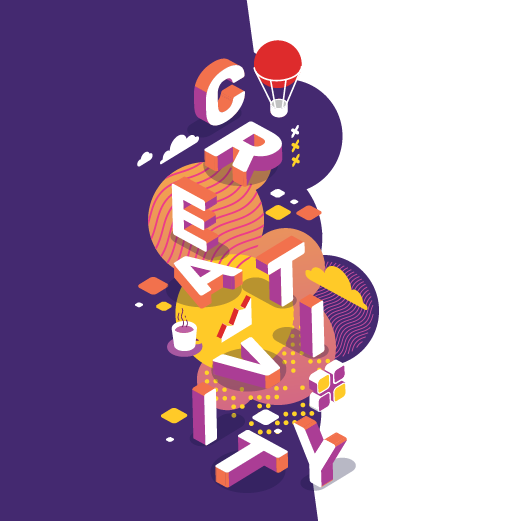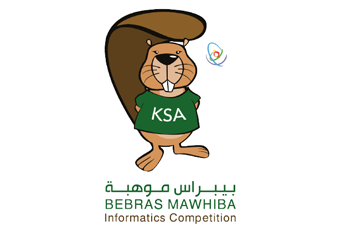Igniting the spirit of innovation in the community of talent and creativity

Dr. Mark Oleksak - Scientific Research Advisor at the National Olympiad for Scientific Creativity
Creativity
27
As Saudi Arabia focuses on economic diversification through Vision 2030, the concept of innovation is evident in many public and private sector circles, with many entities involved in the innovation process; including incubators and accelerators that support individuals in their journey to provide innovative solutions to existing problems or improve existing products or services. These and other organizations have made positive strides in contributing to reducing the Kingdom’s dependence on oil.
One of the parts of this stage that should be addressed and elaborated upon is the human aspect, and what are the requirements for an individual to be an “innovator”, including igniting the flame of enthusiasm within him, and this is clearly evident in the community of talent and creativity as we have witnessed in their previous and current successes in local and international academic and innovation competitions.
The aim of this article is to give recommendations on how to ignite the spirit of enthusiasm and ambition in talented people, but first the concepts used should be defined:
Innovation: An original and useful idea that could be a solution to an existing problem or an improvement to an existing product or service.
Discovery: Something that already exists, but was not known before, and can be identified and transmitted.
Creativity: Exceptional ability, competence, or positive performance that stands out from others in areas of intellectual excellence or in creative practice.
Secondly, it is important to know that individuals are always motivated by certain factors in their pursuit of the final result, and for an innovation project, there may be some personal intentions and purposes that should be reflected, one of these motivations is to contribute to meeting human needs. In any society, there are people who need the help of others, whether due to illness, disability, financial hardship or emotional crises, and supporting those in need can be included under the general goal of doing a good deed.
Another aspect is the need to create a livelihood and earn money to support an individual or an entire family. Jobs are available, but if someone has a clear idea and an available target market, this can lead to the establishment of a startup company capable of success and generating revenue.
Another additional motivation is to satisfy a hobby or interest. Most people have something they love to do outside of work, such as games, cooking, traveling, reading, sports, and many others. Mark Twain said it best when he said: “Find a job you enjoy doing, and you will never have to work a day in your life.” The most enjoyable projects are those that interest their owner and make him wake up every morning wanting to continue working on them.
A final reason that motivates individuals is their interest in the health of their country’s economy and its future self-sufficiency. The Kingdom has undoubtedly set its sights on focusing on the future of innovation and discovery through economic incentives. This is evident in both pure and applied sciences. Pure sciences are works based on academic research in relation to creative projects, according to a scientific methodology or in the process of engineering or invention. Applied sciences are the implementation of innovation on the ground for the purpose of financial and societal benefit.
Some efforts can and should be shifted from pure science to applied projects, following the example of many successful global government strategies. For example, South Korea, which ranks 28th in the world in population and 12th in GDP, has a strategy of investing in theoretical research to achieve applied solutions, which has spawned major companies such as Samsung, Hyundai, and LG, as well as small and medium-sized enterprises, which now account for more than 50% of the country’s manufactured GDP.
Therefore, if innovation is the best solution for international progress and enhancing economic pluralism, this spirit should be encouraged from within, especially among the talented and creative. These are the students and individuals who have latent energies capable of paving the way, overcoming difficulties, and leading with research and engineering solutions in various fields necessary to fortify the economy. To guide them on the right path, these students must be motivated to inspire them, enhance their ingenuity, and develop their sense of imagination and innovation. So, what are the main methods to encourage them?
Here are four top actionable suggestions:
First, provide them with the common characteristics and qualities of the best innovators ever. Over the centuries, the world has witnessed great inventors who changed the world, including, but not limited to: Leonardo da Vinci, Michael Faraday, the Wright brothers, Marie Curie, Thomas Edison, Tim Berners-Lee, Steve Jobs, Elon Musk. In addition to their great contributions to the world in the fields of science and technology, we notice that they have similar qualities that can be transferred to talented people, one of which is mastering basic practical skills, which include:
Reasoning - using evidence and proof to reach a conclusion.
Observation - to carefully examine something for the purpose of evaluation.
Measurement - a comprehensive and precise definition of units.
Classification - grouping based on common characteristics
Prediction - predicting outcomes based on the margin of research conducted.
Communication - the ability to convey information and explain everything clearly to others.
In addition, they all share these personality traits:
- Sharp intelligence (gifted).
- Deep knowledge of their areas of expertise.
- Passion in areas of their choice.
- Discovery is an inspiration to them.
- perseverance.
The last one is very important, as there are stories about the great persistence of all researchers and innovators and their refusal to give up, and each one of them has limitless determination and ambition, and nothing can stop them from achieving their goals.
“Keep trying, you never know what can happen.” – Michael Faraday
“We must have perseverance and, above all, confidence in ourselves.” Marie Curie
“Be honest with yourself and others, be precise, don’t give up, achieve your goals even when things aren’t going well.” Steve Jobs
Secondly, teach the talented and creative to think like innovators. The key here is to teach them how to think like these creative and successful discoverers. Here are the best guidelines to follow to make them focus their minds on the right path:
o Follow the practical skills described above.
o Constantly questioning and finding answers (books and experts).
o Apply their innate critical thinking skills.
o Follow the scientific or engineering approach.
o Solve problems in a logical way.
Third, connect them to the right innovation process. Talented and creative people may have all the tools they need, but they still need to follow the right practices in the innovation process. This will allow them to achieve results through a proven innovation methodology, which includes the steps “from idea to commercialization”:
- Generating the idea of the invention.
- Appreciate its value.
- Search for existing solutions.
- Come up with a solution.
- Protecting the idea through intellectual protection channels.
- Producing the invention through models, tests, and modifications.
- Marketing the invention.
In this area, it is important to consider the “optimal location” for innovation. This relates to the desirability, feasibility, and viability of the idea and its continuity. Desirability is the most perfect solution to meet the needs of the target audience. Feasibility is the availability of human, material, technical, and other resources to implement the idea on an economic level. Viability means the nature of the solution’s application in the specified spatial framework. All of these must be evaluated at the beginning of the process and during any change in the design.
Fourth , maintain operational sustainability through abundant resources and benchmarking. According to Professor Clayton Christensen, a professor at Harvard Business School: “There are approximately 30,000 new products every year, 95% of which fail.”11 This may be due to lack of resources, lack of guidance, and lack of ambition to complete the process. It is essential to ensure that talented people are educated using all available resources, and that they receive guidance and advice from experts to help them overcome the challenges of this stage.
In short, the most important core values to achieve the goals of Vision 2030 are to know the motivations that drive individuals and teams to innovate, advance marketing and contribute to the GDP. In this way, we will pave a clear path in the journey of creative ideas that can lead to quantifiable applications. The community of talented and creative people can and must play a fundamental role in the innovation process because of their capabilities and future visions that can be transferred to the ground. They can also be trained to follow the correct methodology for this in a sound and effective manner. We must continue to keep the glow of their “torch” burning so that they can light the way and pave the way for the diverse growth of the Kingdom in the coming decade .
Did you benefit from the information provided on this page?
visitors liked this page



